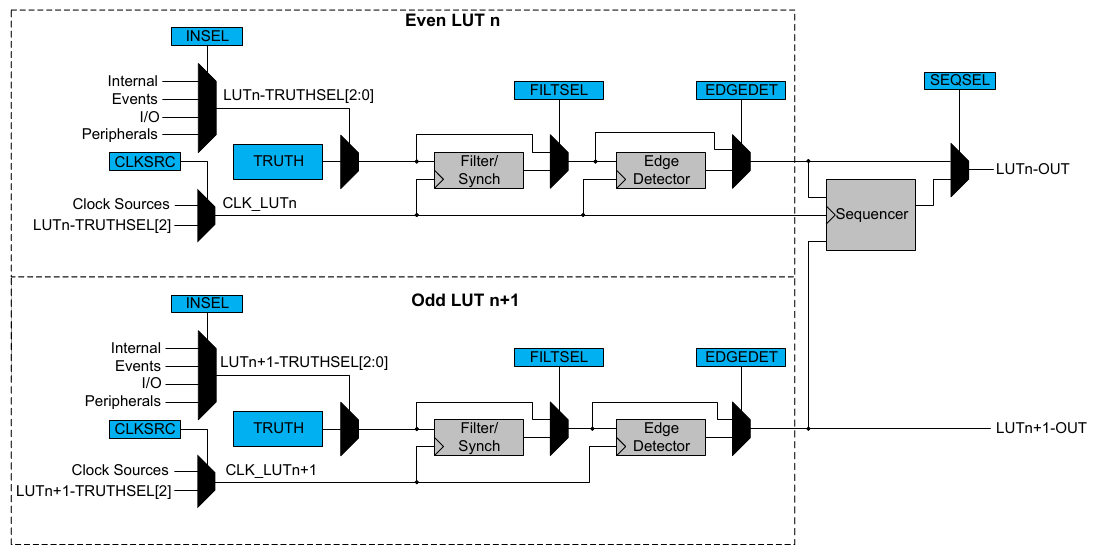Software Testing Methodologies: What They Are and Why They Matter
In today's digital landscape, software quality isn't just an advantage, it's a necessity. Whether developing a web application, mobile app, or enterprise solution, ensuring reliability, performance, and security is non-negotiable. This is where software testing methodologies come into play, serving as the foundation for deli vering flawless applications that meet user expectations. Understanding Software Testing Methodologies Software testing methodologies are structured approaches used to evaluate applications systematically. Since no single testing method fits all scenarios, these methodologies provide tailored strategies based on project requirements, development models, and business objectives. Choosing the right methodology can significantly impact efficiency, cost, and product success. Why Testing Methodologies Are Essential Early Bug Detection: Identifying defects in the initial development stages reduces costs and minimizes resource-intensive fixes later. Enhanced Quality Assurance: Rigorous testing improves software performance, security, and usability, leading to higher user satisfaction. Efficient Resource Management: Structured testing optimizes time and effort, ensuring effective allocation of testing resources. Risk Mitigation: Security and performance testing uncover vulnerabilities before they escalate into critical failures in production. Key Software Testing Methodologies *1. Waterfall Testing * A linear, phase-by-phase approach where testing begins only after development is complete. Best for projects with stable, well-defined requirements and minimal expected changes. *2. Agile Testing * Testing occurs continuously alongside development in short sprints. Encourages collaboration, early defect detection, and iterative improvements. *3. V-Model (Verification & Validation) * Each development phase has a corresponding testing phase, forming a "V" shape. Ensures thorough validation and reduces risks by aligning testing with development. *4. Spiral Testing * Combines iterative development with risk assessment. Each cycle includes planning, risk analysis, development, and testing for incremental refinements. *5. DevOps Testing * Integrates automated testing into CI/CD pipelines for continuous feedback. Accelerates delivery but requires investment in automation tools and infrastructure. Types of Testing Within Methodologies Testing methodologies incorporate various testing types to validate different aspects of software: Functional Testing – Verifies features against requirements (Unit, Integration, System, UAT). *Non-Functional Testing *– Assesses performance, security, and usability (Load, Stress, Security Testing). Exploratory Testing – Unscripted, dynamic testing to uncover unexpected issues. Regression Testing – Ensures new updates don’t disrupt existing functionality. Additionally, testing can be manual or automated, and categorized as Black Box (external behavior) or White Box (internal code structure) testing, depending on the SDLC stage. Software Testing Services Many organizations partner with software testing services to leverage expertise, advanced tools, and cost-effective solutions. Benefits include: Specialized Knowledge – Access to skilled testers proficient in diverse methodologies. Reduced Costs – Eliminates the need for in house testing infrastructure. *Advanced Tools *– Utilization of cutting-edge automation, performance, and security testing tools. Choosing the Right Methodology Selecting an appropriate testing approach depends on: Project Scope & Requirements Budget & Timeline Constraints Risk Factors & Compliance Needs Team Expertise & Size Final Thoughts Software testing methodologies are the backbone of quality assurance, ensuring applications are robust, secure, and high-performing. By adopting the right strategy whether Agile, DevOps, or V-Model, businesses can minimize risks, reduce costs, and deliver superior software that stands out in a competitive market. In an era where software excellence defines success, investing in the right testing methodology isn’t just beneficial but imperative.

In today's digital landscape, software quality isn't just an advantage, it's a necessity. Whether developing a web application, mobile app, or enterprise solution, ensuring reliability, performance, and security is non-negotiable. This is where software testing methodologies come into play, serving as the foundation for deli
 vering flawless applications that meet user expectations.
vering flawless applications that meet user expectations.
Understanding Software Testing Methodologies
Software testing methodologies are structured approaches used to evaluate applications systematically. Since no single testing method fits all scenarios, these methodologies provide tailored strategies based on project requirements, development models, and business objectives. Choosing the right methodology can significantly impact efficiency, cost, and product success.
Why Testing Methodologies Are Essential
- Early Bug Detection: Identifying defects in the initial development stages reduces costs and minimizes resource-intensive fixes later.
- Enhanced Quality Assurance: Rigorous testing improves software performance, security, and usability, leading to higher user satisfaction.
- Efficient Resource Management: Structured testing optimizes time and effort, ensuring effective allocation of testing resources.
- Risk Mitigation: Security and performance testing uncover vulnerabilities before they escalate into critical failures in production.
Key Software Testing Methodologies
*1. Waterfall Testing
*
- A linear, phase-by-phase approach where testing begins only after development is complete.
- Best for projects with stable, well-defined requirements and minimal expected changes. *2. Agile Testing *
- Testing occurs continuously alongside development in short sprints.
- Encourages collaboration, early defect detection, and iterative improvements. *3. V-Model (Verification & Validation) *
- Each development phase has a corresponding testing phase, forming a "V" shape.
- Ensures thorough validation and reduces risks by aligning testing with development. *4. Spiral Testing *
- Combines iterative development with risk assessment.
- Each cycle includes planning, risk analysis, development, and testing for incremental refinements. *5. DevOps Testing *
- Integrates automated testing into CI/CD pipelines for continuous feedback.
- Accelerates delivery but requires investment in automation tools and infrastructure.
Types of Testing Within Methodologies
Testing methodologies incorporate various testing types to validate different aspects of software:
- Functional Testing – Verifies features against requirements (Unit, Integration, System, UAT).
- *Non-Functional Testing *– Assesses performance, security, and usability (Load, Stress, Security Testing).
- Exploratory Testing – Unscripted, dynamic testing to uncover unexpected issues.
- Regression Testing – Ensures new updates don’t disrupt existing functionality.
Additionally, testing can be manual or automated, and categorized as Black Box (external behavior) or White Box (internal code structure) testing, depending on the SDLC stage.
Software Testing Services
Many organizations partner with software testing services to leverage expertise, advanced tools, and cost-effective solutions. Benefits include:
- Specialized Knowledge – Access to skilled testers proficient in diverse methodologies.
- Reduced Costs – Eliminates the need for in house testing infrastructure.
- *Advanced Tools *– Utilization of cutting-edge automation, performance, and security testing tools.
Choosing the Right Methodology
Selecting an appropriate testing approach depends on:
- Project Scope & Requirements
- Budget & Timeline Constraints
- Risk Factors & Compliance Needs
- Team Expertise & Size
Final Thoughts
Software testing methodologies are the backbone of quality assurance, ensuring applications are robust, secure, and high-performing. By adopting the right strategy whether Agile, DevOps, or V-Model, businesses can minimize risks, reduce costs, and deliver superior software that stands out in a competitive market.
In an era where software excellence defines success, investing in the right testing methodology isn’t just beneficial but imperative.





































































































































































![[The AI Show Episode 145]: OpenAI Releases o3 and o4-mini, AI Is Causing “Quiet Layoffs,” Executive Order on Youth AI Education & GPT-4o’s Controversial Update](https://www.marketingaiinstitute.com/hubfs/ep%20145%20cover.png)





























































































































![[FREE EBOOKS] Learn Computer Forensics — 2nd edition, AI and Business Rule Engines for Excel Power Users & Four More Best Selling Titles](https://www.javacodegeeks.com/wp-content/uploads/2012/12/jcg-logo.jpg)





![From Art School Drop-out to Microsoft Engineer with Shashi Lo [Podcast #170]](https://cdn.hashnode.com/res/hashnode/image/upload/v1746203291209/439bf16b-c820-4fe8-b69e-94d80533b2df.png?#)







































































































(1).jpg?#)































_Inge_Johnsson-Alamy.jpg?width=1280&auto=webp&quality=80&disable=upscale#)











































































































![Apple Developing AI 'Vibe-Coding' Assistant for Xcode With Anthropic [Report]](https://www.iclarified.com/images/news/97200/97200/97200-640.jpg)
![Apple's New Ads Spotlight Apple Watch for Kids [Video]](https://www.iclarified.com/images/news/97197/97197/97197-640.jpg)



































































































